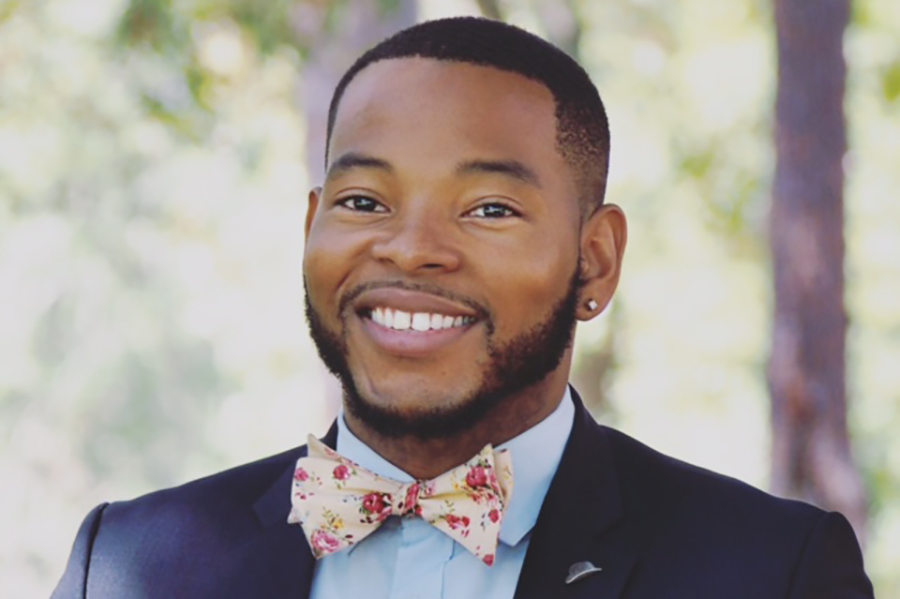Lawrence Jackson

"To promote, inspire, and empower others."
College: Health and Human Sciences
Degree Program: Marriage and Family Therapy
Degree: Doctorate
Award: AAMFT Minority Fellowship (2018); McKnight Doctoral Fellowship (2016)
Video Credit: Natalia Lopez
Why FSU?
There are multiple reasons why I chose FSU for my doctoral education in Marriage and Family Therapy. When I was applying for doctoral programs, FSU was revered by my professors and other mentors. Additionally, FSU had faculty who focused on marginalized populations within their program of research. Lastly, it was very welcoming when I visited for my interview. It just felt like the right place to be from the moment I stepped on campus.
Motivation to pursue a graduate degree
I was motivated to pursue my graduate degree to be an inspiration to other Black males. As a master-level clinician, I would attend national conferences and be surprised to not see many people of color. I would be even more surprised to see a Black male face at conferences and noticed that there was a vacancy of people of color within academia in our field. I hope to inspire others to not only go to college, but also to seek higher education. I want to lower the stigma regarding mental health for people of color and share the importance of healing to others.
Importance of research and work
My research and work are extremely important. My current research has focused on support variables that influence Black males' academic achievement. I do not think many people know that Black males make up less than 5% of college enrollees and that less than 40% of those enrollees will graduate within a six-year period. It is surprising to me how this is not “breaking news” or not a priority within our educational system. Due to this problem, I have made it my priority to find support variables that better lead to the success of Black males. I realize that if I do not do this research, then it may not ever be done. I believe that there is a negative narrative surrounding Black men in our country, and I hope to be instrumental in transforming that narrative. Additionally, my work as a therapist and mental health advocate is aimed at normalizing therapy for people of color. There have been numerous times new clients of color have entered my office and stated, “This is my first time in therapy.” They would also say that they chose me as their therapist due to how I present myself as a person of color. It led me to recognize how important it is for communities of color to have clinicians of color to serve them. There has been such a mistrust with health services and people of color within American history. I recognize the need for clinicians of color to bridge that gap to serve the communities of interest.
Advice for anyone considering graduate school
JUST DO IT. Time is going to pass whether you are pursuing graduate studies or not. Just take that step. I would also like to caution anyone in graduate education to “Trust the process; not rush the process.” Sometimes the most important part of our journey is the one that is the least comfortable.
Accomplishments during your graduate career that you are proud of
I am most proud that I have been able to serve as a visiting faculty member at another university during my graduate studies. This is a rare opportunity, and I am happy that I have been able to be a part of University of Nevada, Las Vegas’s Couple and Family Therapy program. During my graduate studies, in 2017, I won the Joyce B. and Bob L. Miles Scholarship and the Elsie Thomas Miller Scholarship. In 2016, I joined the FSU Fellows Society. I am also proud to be a recipient of the American Association for Marriage and Family Therapy Minority Fellowship and the McKnight Doctoral Fellowship!
Career aspirations
Some of my career aspirations include creating and developing a couple and family therapy program at a Historical Black College and University. Additionally, I want to work as a wellness coach for a sports team and be their primary mental health clinician. I also want to be instrumental in changing the narrative and creating more opportunities of educational success for people of color.
